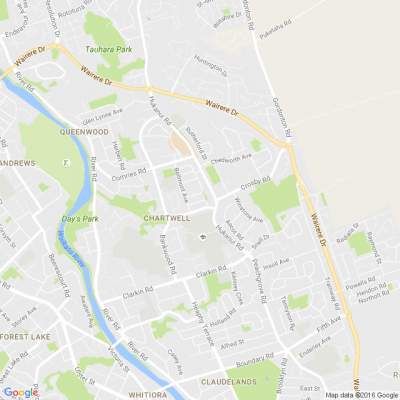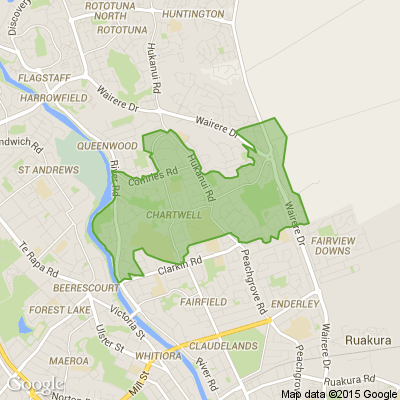THE LEGALISATION OF EUTHANASIA: A CRITICAL LOOK
“I WILL KEEP [THE SICK] FROM HARM AND INJUSTICE. I WILL NEITHER GIVE A DEADLY DRUG TO ANYBODY WHO ASKED FOR IT, NOR WILL I MAKE A SUGGESTION TO THIS EFFECT”.THE HIPPOCRATIC OATH[1]
The upcoming referendum on whether the End of Life Choice Act 2019 should come into force has ignited the debate around euthanasia in New Zealand. If 50% of voters in the referendum vote in favour of it, then the Act will come into force and people with a terminal illness will be provided the option of requesting assisted dying.
While both sides of the debate have staunch supporters, it sometimes seems as if pro assisted dying arguments have become extremely publicised in the media and wider society. Death with dignity, the right to choose to end it – these phrases and others like them have become common in political and social spheres. Many people, out of a most commendable intention to live the most ethical and compassionate lives possible, see such arguments and begin to think that the idea of assisted dying is one that will bring benefit to others and to society as a whole.
To be able to make the most informed and correct decision, however, it is necessary to approach an issue in a balanced and open-minded manner. When it comes to questions as potentially serious as the legalisation of assisted dying, it is even more imperative that we take a critical look at the facts and the possible implications of any decisions we make.
In order to do this, the first step is to analyse what exactly is being debated. What will happen if the Act comes into force?
According to referendums.govt.nz, the New Zealand government’s impartial source of information for voters regarding the upcoming referendums, people who meet certain criteria will be eligible for assisted dying (i.e, being given medication by a doctor or nurse practitioner, or taking medication themselves, in order to relieve their suffering by bringing on death).
THE INDIVIDUAL IN QUESTION MUST:be aged 18 years or overbe a citizen or permanent resident of New Zealandsuffer from a terminal illness that is likely to end their life within 6 monthshave significant and ongoing decline in physical capabilityexperience unbearable suffering that cannot be eased be able to make an informed decision about assisted dyingA PERSON WHO ONLY:is suffering from a mental disorder or mental illnesshas a disability of any kindis of advanced age
will not be eligible for assisted dying.
The person in question must also be able to understand, remember, and use information regarding assisted dying and communicate their decision.[2]
Now that we have this information, we can consider an important question: is assisted dying, as outlined in this Act, ethical? At first sight, perhaps, one might find such a question absurd. “How can it not be ethical to allow someone to end their suffering?” To answer this objection, it is necessary to take a closer look and ask ourselves a series of questions. The first point which requires careful thought relates to the sanctity and value of life itself. It is a universal truth, established in the law, that life itself is inviolable, and no one person’s life is worth less than that of another. Thus, the question to ask here is this: does categorising certain people’s lives as being eligible for being legally ended diminish this equality and sanctity?
This question opens the way to another one: who decides whether a life is worth ending or not? In this particular Act, a person who fulfils all the relevant criteria, with a terminal illness likely to end their life within 6 months, and in “unbearable suffering” is able to make such a decision. The reason for this choice, as outlined in the definition of assisted dying (which is what the Act is legalising), is to “relieve their suffering by bringing on death”.
The second question is this: why is it that only those who are suffering from a terminal illness have been permitted to be able to relieve their suffering in this way? The Act, for instance, specifically excludes those suffering from the effects of old age. If we look at the list of criteria again, though, a rather concerning conclusion becomes apparent: old age fulfils all of them. Someone suffering from extreme old age is obviously at a heightened risk of dying within 6 months; they are also, by definition, in an advanced state of irreversible decline in physical capability. Many also experience unbearable suffering that cannot be relieved as a consequence of their age. And many are able to make a very well-informed decision about assisted dying. So why do they not have the “right to die”?
This is not, in any way, shape, or form, to imply that such people’s lives do not have value. The sole purpose of this question is to demonstrate the fundamental problem with attempting to draw lines around who should be permitted to have assistance in ending their own lives. Why are some people included, and others, who fulfil the exact same criteria, excluded?
A similar case can be made for those suffering from mental disorders or mental illness. Recently, there has been a huge push for mental illnesses and disorders to be accepted as real problems with real effects – so why are they not treated in this way in the Act? Unfortunately, this seems to be a classic case of mixed messaging. For disabilities, the same argument can be made again. What if someone with a disability feels that because of their disability, their life is full of suffering to the extent that death is the only form of relief?
Again, this is not at all intended to imply that those with disabilities or mental illnesses have lives of lesser value in any way whatsoever than anyone else. The only purpose of raising these scenarios is to highlight a very serious flaw with assisted dying: who decides whether their suffering is sufficient for death to be a solution? Clearly, it is not the person who is suffering, since only one particular category of people is permitted to choose assisted dying while any other form of suffering is categorised as not being suitable to warrant such an option.
Suffering, by its very nature, is a completely subjective thing. We can see this very easily in our everyday lives; some people can seemingly tolerate huge amounts of physical, mental and emotional pain while others struggle with even a fraction of that. How, then, can we judge whether someone’s suffering is sufficiently “unbearable” or not? To allow assisted dying in this one case is to open the door to a huge number of moral and ethical objections such as this one – once the choice to take a life based on suffering becomes is given out, there is no turning back.
This whole conversation on morality and ethics, though, is completely separate to the immediate ramifications of allowing assisted dying. There obviously exists the potential for abuse, even with the checks and balances in place throughout the process (for example, the doctor involved in the process must do their best to ensure that the person’s choice is of their own free will); there is also the issue of people viewing certain groups who are eligible for euthanasia as having lives that somehow are worth less (after all, if they have the option to end their lives, what are their lives really worth?). And, for doctors, assisted dying presents an issue because it violates the very first principle of medicine: to “do no harm”. Indeed, the Hippocratic Oath states: “I will keep [the sick] from harm and injustice. I will neither give a deadly drug to anybody who asked for it, nor will I make a suggestion to this effect.” These problems are all worrying to the say the least. What, then, is the solution?
Islam lays down a simple principle. Life is given by God, and only God can take it away. The Holy Quran establishes this founding principle succinctly and clearly –
it is forbidden tokill the life which Allah has made sacred. (chapter 6, verse 152)
specifically states,
kill not your own selves. (chapter 4, verse 30)
Suicide in Islam is considered a sin.
For Muslims, temporary suffering in this world is not permitted to interfere with this principle of the sanctity of life, since in Islamic theology, this present form of existence is merely transient, and pales into insignificance when compared to the afterlife. Suffering that cannot be alleviated through any means becomes a means of forgiveness of one’s sins, until God brings about death by His will – it is recorded in Sahih Bukhari that the prophet Muhammad, peace be upon him, stated:
Nothing afflicts a Muslim of hardship, nor illness, nor anxiety, nor sorrow, nor harm, nor distress, nor even the pricking of a thorn, but that Allah will expiate his sins by it.[3]
The question of whether assisted dying should be permitted or not, then, is a much more nuanced issue than it may appear to be at first glance. It cannot be denied that its legalisation raises many problems, and those who are in favour of it will need to find a way to come to terms with the ramifications – both ethical and practical – that it brings with it.
1. Ludwig Edelstein, The Hippocratic Oath: Text, Translation and Interpretation (Baltimore, MD: Johns Hopkins University Press, 1943)
2.www.referendums.govt.nz...
3. Ṣaḥīḥ al-Bukhārī 5318

Today’s Mind-Bender is the Last of the Year! Can You Guess It Before Everyone Else? 🌟🎁🌲
I dance in the sky with green and gold, a spectacle few are lucky to behold; I’m best seen in the south, a celestial sight—what am I, lighting up the New Zealand night?
Do you think you know the answer? Simply 'Like' this post and we'll post the answer in the comments below at 2pm on the day!
Want to stop seeing these in your newsfeed? No worries! Simply head here and click once on the Following button.

No gift? No stress
Let the Christmas elves at Mags4gifts.co.nz handle your last-minute shopping. For a limited time, gift a subscription with up to 40% off best-sellers like TV Guide, NZ House & Garden, and NZ Gardener. It’s the perfect Christmas present, sorted in minutes (and no one needs to know it was a last-minute surprise)!








 Loading…
Loading…